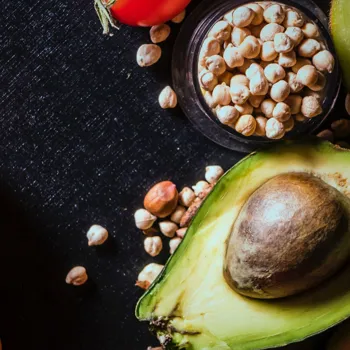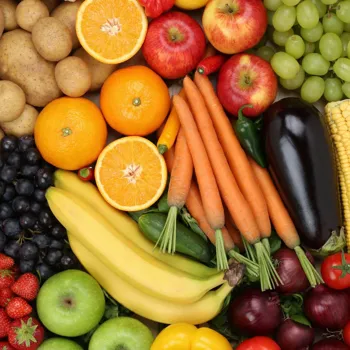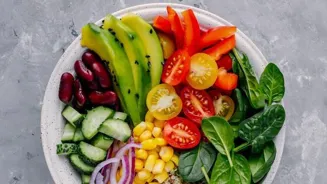Discover how to create perfectly balanced meals every time! Dive into 7 essential tips for nourishing your body
In today's fast-paced world, where instant noodles and takeaway menus beckon from every corner,
the art of crafting a balanced meal often gets lost in the shuffle. But hold on a minute, folks! Eating right doesn't have to be rocket science.
With a few simple guidelines, you can whip up nutritious and satisfying meals that fuel your body and keep you feeling fantastic. Forget complicated diets and restrictive rules; we're talking about building a sustainable and enjoyable approach to healthy eating, one plate at a time.
After all, what you eat directly impacts your energy levels, mood, and overall well-being. Let's dive into seven essential tips that will transform your meals from mundane to magnificent!
Plate as canvas, diverse foods paint rich nutrition palette
Think of your plate as a canvas, and food as your vibrant paints. The wider the spectrum of colours, the richer the nutritional value. Different coloured fruits and vegetables are packed with unique vitamins, minerals, and antioxidants.
So, instead of just sticking to the usual suspects, branch out and explore the rainbow. Add some leafy greens like spinach or kale for dark green, carrots or sweet potatoes for orange, beetroot or red cabbage for purple-red, and bell peppers for yellow and red.
When it comes to colour, variety is truly the spice (and health!) of life. These vibrant hues are not just visually appealing; they're indicators of the powerful nutrients within. Load up fruits and vegetables to about half your plate.
From crisp cucumbers to juicy strawberries, the possibilities are endless.
Protein is crucial for satiety, energy, and tissue health
Protein is the unsung hero of a balanced meal, playing a pivotal role in building and repairing tissues, supporting immune function, and keeping you feeling full and satisfied. Without enough protein, you might find yourself struggling with constant hunger pangs and energy crashes.
But before you reach for that processed snack, consider incorporating protein-rich foods into your diet. Excellent vegetarian options include dals (lentils), chickpeas, kidney beans, paneer, tofu, and nuts and seeds. Aim for some protein on every plate.
Choose complex carbs for sustained energy, limit refined ones
Not all carbs are created equal. While refined carbohydrates like white bread and sugary cereals can lead to rapid spikes and crashes in blood sugar, complex carbohydrates provide a sustained release of energy, keeping you feeling energized throughout the day.
Choose whole grains like brown rice, quinoa, and oats, or whole-wheat roti. Include starchy vegetables like sweet potatoes, corn, or peas. Keep your carb serving to about one-fourth of your plate. These options are packed with fibre, which aids digestion and promotes a feeling of fullness.
Choose these carbs to provide your body with sustained energy.
Healthy fats are crucial for your body; incorporate them in moderation
Fats often get a bad rap, but healthy fats are crucial for brain function, hormone production, and nutrient absorption. Don't be afraid to incorporate small amounts of healthy fats into your meals.

Think of adding a handful of nuts or seeds to your breakfast, drizzling a bit of olive oil over your salad, or including avocado in your sandwich. Focus on unsaturated fats found in plant-based sources; these are good fats that are helpful for your body.
Remember, moderation is key; a little goes a long way.
Stay hydrated with water for overall health, avoid sugary drinks
We often focus so much on what we eat that we forget about what we drink. Staying properly hydrated is essential for everything from regulating body temperature to transporting nutrients.

Water is always the best choice, but you can also include unsweetened beverages like herbal tea, coconut water, or homemade lemonade. Avoid sugary drinks like soda and packaged juices, as they can lead to weight gain and other health problems.
Think of it as taking a fresh bath to clear off all the germs and dirt. Therefore, taking water is essential since it clears harmful nutrients from your body. Aim for at least eight glasses of water a day, and more if you're physically active or live in a hot climate.
Mindful eating: savor each bite, tune into hunger cues, reduce overeating
In our rush to get things done, we often wolf down our meals without truly paying attention to what we're eating. Mindful eating involves slowing down, savouring each bite, and paying attention to your body's hunger and fullness cues.
Turn off the TV, put away your phone, and focus on the flavours, textures, and aromas of your food. This can help you to better manage your portions and reduce overeating. Sit at the table while eating, and take the time to enjoy the meal.
Even when you're eating healthy foods, consuming too much can lead to weight gain. Pay attention to portion sizes to ensure you're eating the right amount for your body's needs. You can use smaller plates, measuring cups, or even just your own hands to estimate portion sizes. A general rule of thumb is to fill half your plate with fruits and vegetables, one-quarter with protein, and one-quarter with whole grains. Keep in mind that portion sizes can vary depending on your age, activity level, and individual needs.
By following these seven simple tips, you can transform your meals from ordinary to extraordinary, nourishing your body and mind from the inside out. Remember, healthy eating is a journey, not a destination. So, be patient, experiment with different foods, and find what works best for you.

Happy eating!
AI Generated Content. Glance/InMobi shall have no liability for the content












